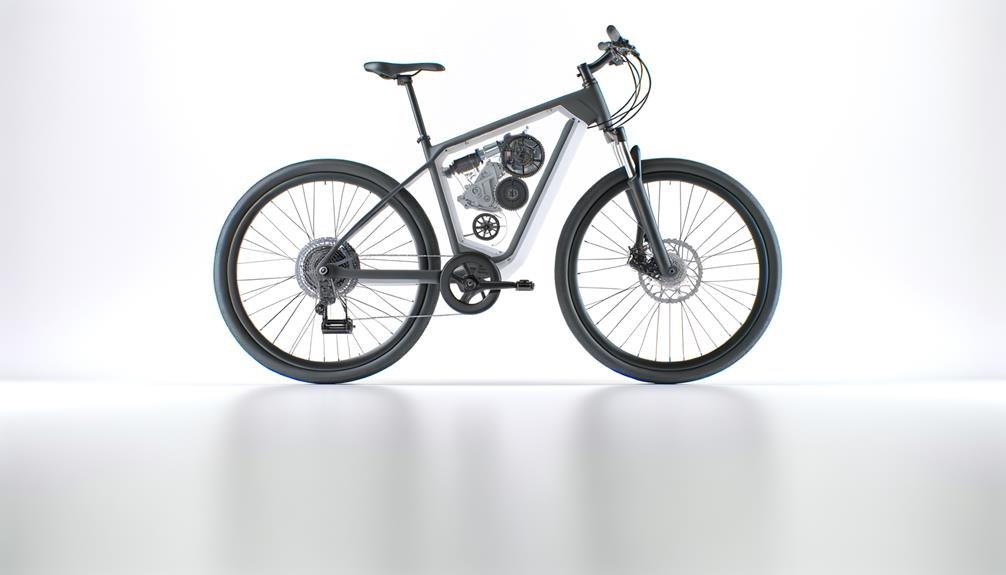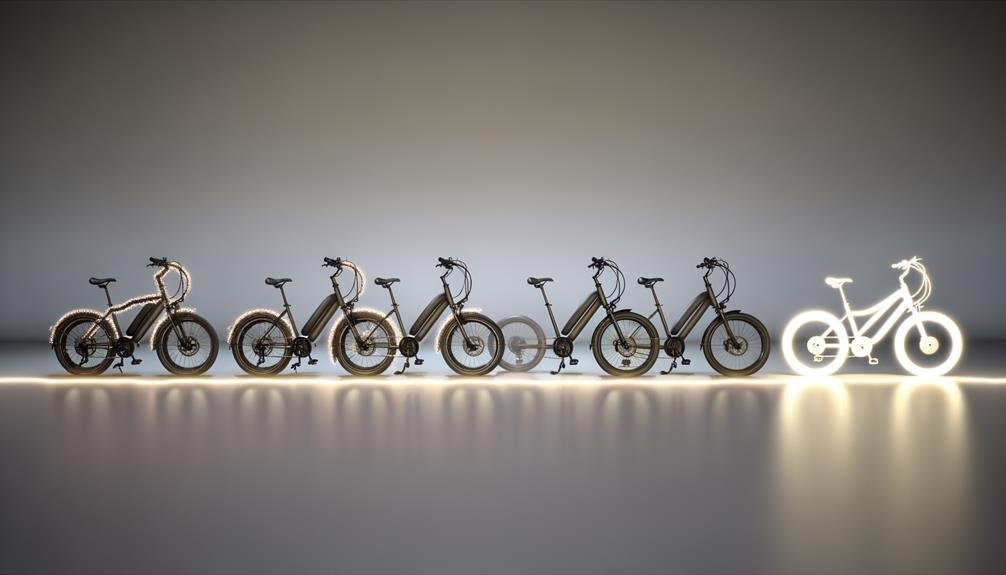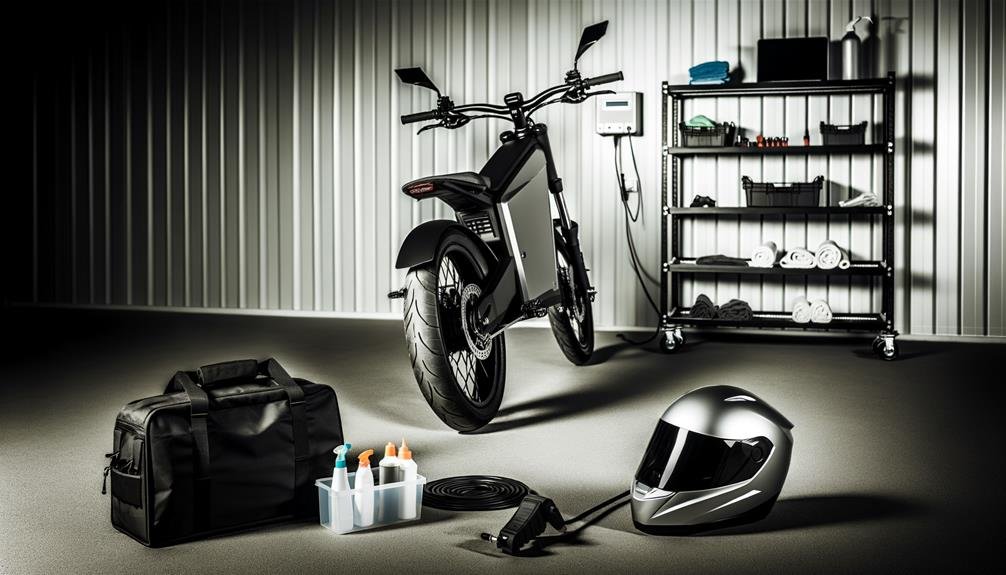Charles Miller is a veteran bike enthusiast with over 12 years of experience dealing with bikes as a mechanic. Despite immense love and expertise for...
Wattage wows and worries wield the wheel when we're wondering which e-bike is the best buy. This vital variable in e-bike selection often leaves potential purchasers puzzled.
Do we dole out dollars for more watts, or do we opt for a more moderate motor? The answer isn't as straightforward as we might hope. It hinges on a host of factors such as terrain, personal fitness, local regulations, and even the weight of the rider.
So, let's continue the conversation, and clarify this complex conundrum.
Key Takeaways
- Motor wattage determines power, acceleration, and climbing ability of an ebike.
- Higher wattage motors offer better performance on steep gradients and heavier loads.
- Regulatory limitations may apply to higher wattage motors, depending on the country or region.
- When choosing the ideal wattage for an ebike, consider riding style, regional regulations, efficiency, power, and budget.
Understanding Ebike Wattage
Delving into the world of ebike wattage, it's crucial to understand that the motor's wattage determines the power, acceleration, and climbing ability of an electric bike. As you navigate this journey, aiming to answer the question: 'What wattage ebike do I need?', a clear understanding of ebike wattage is indispensable.
Common wattage options range from 250 watts, suitable for entry-level electric bikes, up to 750 watts for higher wattage motors. These more powerful motors offer better performance on steep gradients and under heavier loads. However, they may be subject to regulatory limitations, making it vital to understand ebike wattage regulations in your specific country or region.
The right e-bike power for you depends on your individual needs. Are you commuting short distances daily or embarking on long leisure rides? Your answer dictates the balance between power, weight, and cost. Higher wattage motors typically provide more power, but they also come with increased weight and cost.
We hope this information aids you in understanding ebike wattage. Our aim is to empower you to make an informed decision about your next electric bike purchase. With the right knowledge, we're confident you'll find the perfect fit.
Impact of Wattage on Performance
When it comes to the impact of wattage on performance, higher wattage e-bike motors certainly deliver more power, leading to faster acceleration and superior climbing ability. However, there's more to consider when deciding 'what wattage ebike do I need?'
The higher the wattage, the more power an electric bicycle can deliver, but it also means:
- More energy consumption which could shorten your ride
- Regulatory limitations depending on your country or region
- A potentially heavier and less portable e-bike
- Reduced efficiency in certain conditions
- A higher price tag for the increased power
While a motor ranging from 750 to 1,000 watts can handle most terrains, it mightn't be necessary if your rides are on flat surfaces or short distances. The right amount of power for your e-bike is a personal decision, influenced by the type of riding you do and the terrain you typically encounter.
Comparing Different Wattage Levels
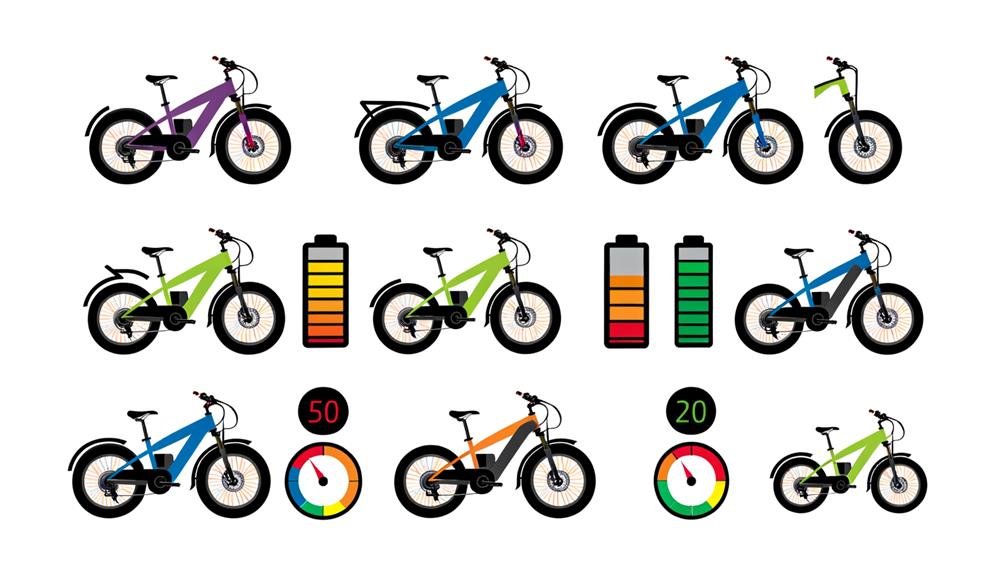
Having weighed the general pros and cons of high wattage e-bikes, let's now take a closer look at the differences between common wattage levels, such as 250, 350, 500, and 750 watts, and how they can affect your riding experience.
Comparing different wattage levels, it's clear that the power level of the electric motor has a direct impact on performance. A higher wattage translates to more actual power, enabling faster acceleration and better hill-climbing ability. However, high power also means greater energy consumption and potential regulatory limitations.
To create a vivid picture, consider this table:
| Wattage | Benefits | Downsides |
|---|---|---|
| 250 W | Efficient, good for flat terrain | Limited hill-climbing |
| 350 W | Balanced power and efficiency | May be max limit in some areas |
| 500 W | Fast, good hill-climbing | More energy consumption |
| 750 W | High power, excellent performance | May require special permit, high energy use |
In deciding 'what wattage eBike do I need', remember to weigh the benefits and downsides of each power level, taking into account your specific riding needs, local regulations, and the desire to belong to the wider eBike community.
Choosing Your Ideal Wattage
Now, let's dive into the process of selecting the ideal wattage for your e-bike, a decision influenced by various factors such as personal riding needs, regional regulations, and desired balance of power and efficiency. Knowing what wattage e-bike you need is essential to ensure that you have enough power for your intended use.
The process of choosing your ideal wattage involves analyzing several aspects:
- Your Riding Needs: Determine how much power you need based on your riding style. For casual city commuting, a lower wattage may suffice, while off-road adventures require special, higher wattages.
- Regional Regulations: Some regions have specific limitations on e-bike wattages, so it's crucial to know how much is legally allowed.
- Efficiency and Power: Higher wattages offer more power but can drain the battery faster. Choose a balance that suits your needs.
- Cost: Higher wattage e-bikes are generally more expensive. Ensure the wattage you choose aligns with your budget.
- Weight: Higher wattage e-bikes are typically heavier. If lightweight is essential, a lower wattage may be more suitable.
In the end, only you can decide the right wattage for your e-bike. It's all about finding that perfect balance.
High-Wattage Ebikes: Pros and Cons
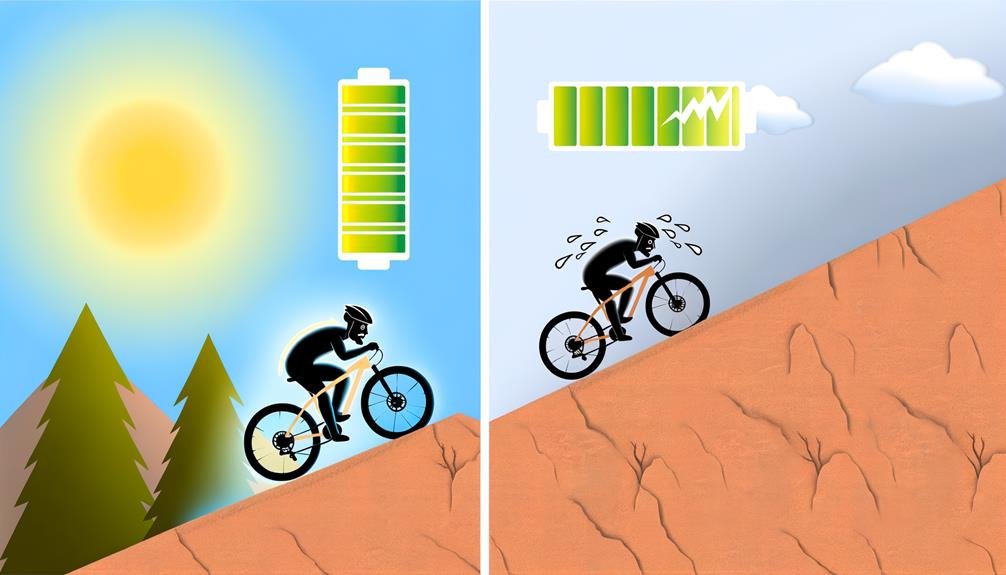
Delving into the realm of high-wattage ebikes, it's essential to consider both the advantages and potential drawbacks of these power-packed options. These electric bikes, with their higher power, offer significant speed and acceleration, making them a top choice for thrill-seekers and those who frequently climb steep hills. However, one must also consider the energy consumption and possible regulatory limitations.
| Pros | Cons | Ideal For |
|---|---|---|
| Fast acceleration | Higher energy consumption | Thrill-seekers |
| Better climbing ability | Regulatory limitations | Steep terrains |
| Suitable for heavier loads | Not legal in some areas | Heavy-duty use |
Despite the cons, high-wattage ebikes' power and efficiency can't be ignored. They're perfect for heavy-duty use, steep terrains, and those who crave speed. However, it's crucial to understand the regional regulations about ebike wattage before making your decision. So, when you ask yourself, "what wattage ebike do I need?" consider your needs, the local laws, and the pros and cons of high-wattage ebikes. Always remember, the right Electric Bike for you is one that suits your lifestyle and respects the law, be it a hub motor or other types.
Frequently Asked Questions
Is 750W Enough for Ebike?
We believe 750w is enough for an ebike. It offers great terrain handling, ample load capacity, and good battery efficiency. Motor durability, distance coverage, and speed variations are also satisfactory with a 750w motor.
Is a 250 Watt Ebike Powerful Enough?
We believe a 250-watt ebike can be powerful enough. It offers pedal assistance, decent terrain handling, and speed control. However, its battery lifespan, weight capacity, and range coverage might be limited compared to higher-wattage counterparts.
Is 500 Watt Ebike Powerful Enough?
We believe a 500-watt e-bike's power is substantial, offering improved terrain handling, acceleration efficiency, and load capacity. It also ensures greater battery longevity, riding comfort, and requires less frequent maintenance than less powerful models.
How Fast Can a 200w Electric Bike Go?
We've found that a 200w electric bike typically reaches speeds of 15-20 mph. Speed regulation, terrain impact, rider's weight, and battery efficiency all affect this. However, legal restrictions and maintenance factors can also influence performance.
Conclusion
In conclusion, choosing the perfect e-bike wattage isn't rocket science. It's a careful balance of power, efficiency, and your personal needs. Whether you're climbing steep hills or just cruising, there's a wattage for you.
Let's not get stuck in the dark ages, it's time to embrace the future of transportation. Remember, knowledge is power and in this case, it could also mean the perfect e-bike!
So, gear up and choose wisely, your perfect ride awaits.

Charles Miller is a veteran bike enthusiast with over 12 years of experience dealing with bikes as a mechanic. Despite immense love and expertise for his Tacoma, he rides his Trek Ebike more. Anytime you meet him, you’ll either hear him talking about Bikes, or writing about all things bikes and cars on this blog.
More Posts
